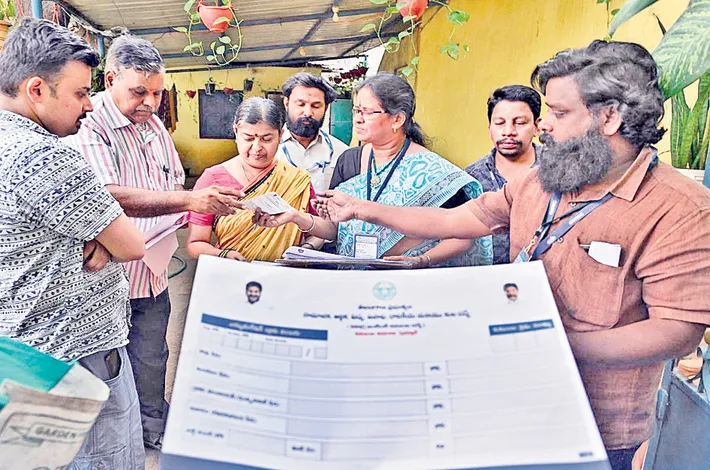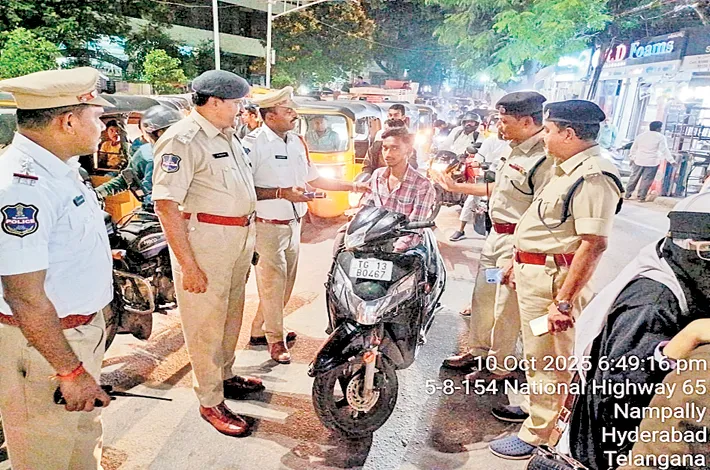SEEEPC Survey: A flawed model for reservation reform?
05-06-2025 12:00:00 AM

Branding SEEEPC a national benchmark is premature. Without public data, sound methodology, or judicial review, its legitimacy remains questionable. Reservation reform must be guided by constitutional discipline, not political urgency
The Telangana government has projected its Social, Educational, Economic, Employment and Caste (SEEEPC) Survey as a “national role model” for backward class (BC) reservation policy. However, a closer constitutional and procedural examination reveals significant concerns around transparency, legality, and public accountability.
Some political narratives compare SEEEPC to the 2014 Samagra Kutumba Survey (SKS), but the two exercises differ fundamentally. While SKS was an administrative effort to assess welfare needs at the household level, SEEEPC was explicitly designed to serve as a basis for constitutional reservation enhancement. SKS did not alter constitutional entitlements or impact legislative quotas; its data was never published and was not used to justify reservations.
In contrast, the SEEEPC survey has direct constitutional implications. It aligns with the Congress party’s 2023 manifesto and Kamareddy BC Declaration, both of which promised 42% reservations for BCs in education, employment, and local governance. The state government subsequently passed two Reservation Bills, citing SEEEPC data and seeking protection under Article 31-C of the Constitution.
However, the survey and its implementation raise several red flags: Politicization and Public Distrust
Survey forms carried photographs of the Chief Minister and Deputy Chief Minister, giving the impression of a politically driven exercise. This undermined public confidence, and participation reportedly declined amid concerns over data misuse.
Lack of Independent Oversight
Instead of forming a judicial or statutory body under Article 340 or the Commission of Inquiry Act, the state appointed two “one-man commissions” led by a retired IAS officer with no legal or academic background. These commissions lacked institutional independence and credibility.
Superficial and Premature Reporting
The Education and Employment Commission submitted its report in just seven days. The Local Bodies Commission submitted its findings even before the SEEEPC survey was completed. There was no evidence of public hearings, expert consultations, or caste-wise socio-economic analysis. Nevertheless, these reports were cited to justify major constitutional changes.
Privacy Concerns
The survey included intrusive questions about property, bank accounts, insurance policies, and loans—without legal safeguards. These queries potentially violate the Supreme Court’s ruling in Puttaswamy v. Union of India (2017), which affirmed privacy as a fundamental right under Article 21.
Lack of Legislative Transparency
The SEEEPC dataset was never made public. No detailed justification for the proposed reservations was presented in the Assembly. The Reservation Bills were passed without debate or scrutiny of the survey data.
The move also appears to bypass key constitutional requirements outlined in Indra Sawhney (1992) and IR Coelho (2007), including quantifiable backwardness, inadequate representation, and exceptional circumstances.
By contrast, Tamil Nadu’s 69% reservation policy was built on a detailed two-year study by the Ambashankar Commission, tabled in the legislature, and protected under the Ninth Schedule—demonstrating the kind of legal and empirical rigor that Telangana’s model currently lacks.
Branding SEEEPC a national benchmark is premature. Without public data, sound methodology, or judicial review, its legitimacy remains questionable. Reservation reform must be guided by constitutional discipline, not political urgency.
(Dr. Vakulabharanam Krishna Mohan Rao, Former Chairman, Telangana State Backward Classes Commission.)








